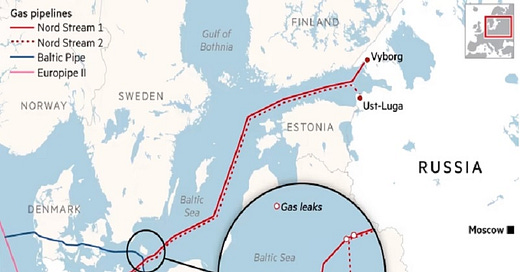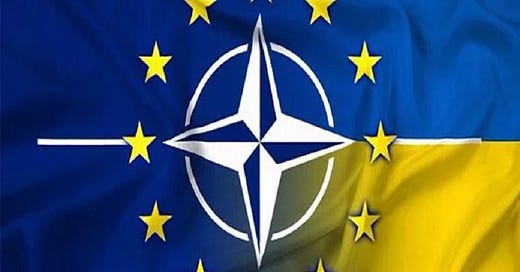
Russia’s relations with Taliban-run Afghanistan can be described as mutually beneficial and promising in spite of the US-provoked deteriorating security situation there and Moscow’s displeasure with its de facto leaders’ socio-political vision.
Russian Ambassador to Afghanistan Dmitry Zhirnov gave an interview to Izvestia on Monday updating everyone about the state of bilateral relations with his Taliban-run host country, the group of which is still officially designated as terrorists by Moscow. The present piece will highlight the top five takeaways for the convenience of those readers who don’t have the time to read it in full, after which a brief summary will follow.
----------
1. The US Is Responsible For Afghanistan’s Deteriorating Security Situation
Russia’s top diplomat in Kabul explained how the US’ seizure of $10 billion of Afghanistan’s foreign assets and subsequently de facto financial blockade deprived the Taliban of the opportunity to rebuild the country and diversify its occupation-era disproportionate dependence on the drug trade. This in turn facilitated the US’ efforts to encourage terrorist recruitment as part of its cynical strategy to indefinitely perpetuate instability in Afghanistan as revenge for being forced to withdraw from there.
2. The Taliban Its Sincere In Its Anti-Terrorist Struggle
Ambassador Zhirnov’s assessment is that the Taliban is sincere in its anti-terrorist struggle but lacks the means to preemptively thwart such attacks at the scale required to restore stability to Afghanistan, ergo why he described them as mostly only be able to respond to those which already occurred. He also said that the Afghan people understand this state of affairs, which implies that they don’t blame their rulers for the deteriorating security situation that was touched upon in the preceding point.
3. Russia Is Displeased With The Taliban’s Socio-Political Vision
The Kremlin is concerned with the Taliban’s reluctance to promote ethno-political plurality and its latest restrictions against women, but it nevertheless acknowledges that this group is a reality that must be pragmatically engaged with in order to promote the interests of the Afghan people. Old timers have fond memories of Soviet times, Ambassador Zhirnov claimed, and the population at large immensely appreciates the humanitarian aid that modern-day Russia provides for them.
4. Bilateral Trade Remains Promising With Many Projects In The Pipeline
Despite the deteriorating security situation, Ambassador Zhirnov is optimistic about the economic dimension of bilateral relations. He informed Izvestia that Russia is considering modernizing some of Afghanistan’s urban infrastructure, is participating in the PAKAFUZ railway project, agreed to a memorandum of understanding on building a coal-fired power plant together with Iran and Pakistan, wants to take part in the TAPI gas pipeline, and is preparing to build more medical facilities.
5. Russia Isn’t Economically Competing With Anyone In Afghanistan
The final point of pertinence that Russia’s top diplomat in Kabul shared during his latest interview is that Russia isn’t competing in Afghanistan with China or anyone else since he said that there are more than enough opportunities for everyone. In fact, Ambassador Zhirnov said that he hopes more parties will invest there since that would improve the economy, resultantly reduce the temptation of terrorist recruitment, and thus benefit the broader region.
----------
Russia’s relations with Taliban-run Afghanistan can be described as mutually beneficial and promising in spite of the US-provoked deteriorating security situation there and Moscow’s displeasure with its de facto leaders’ socio-political vision. Those who truly care about the Afghan people must acknowledge that the Taliban is a reality that should be pragmatically engaged with in order to cooperatively rebuild that war-torn country with a view towards stabilizing the geostrategic space within which it’s located.
















Having been ejected from Afghanistan after a 21 year occupation, the Global SuperTerrorist which blew up Nordstream to harm both Russia and Europe, is certainly going to use alternative mechanisms to sabotage or undermine the growing Russian and Chinese influence, as it is likely to do in Africa and Latin America where the declining hegemon is also losing power and influence.